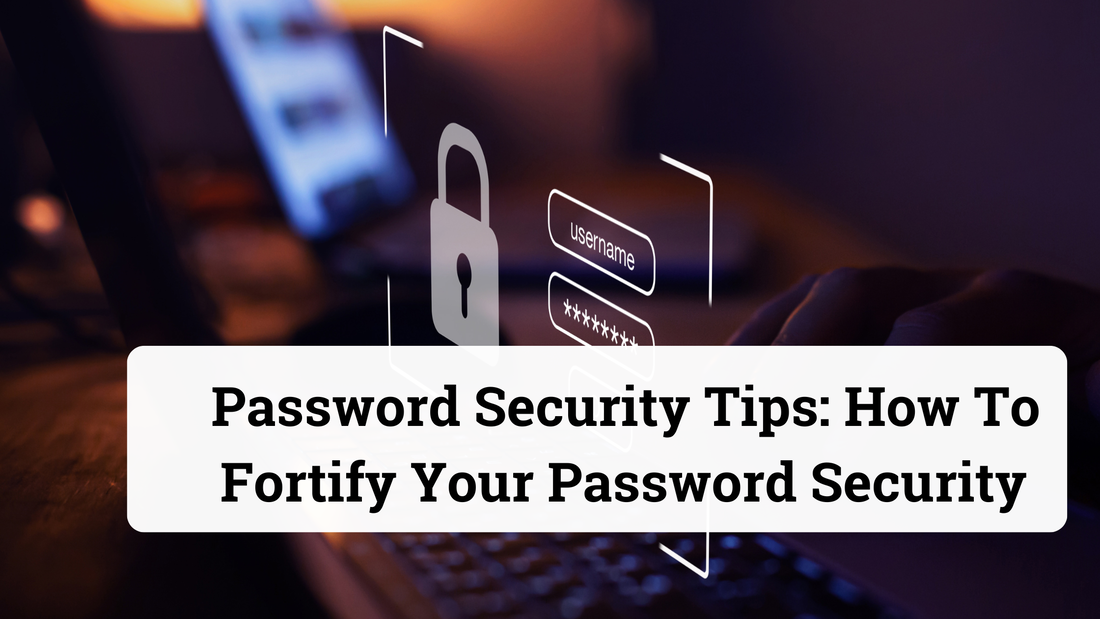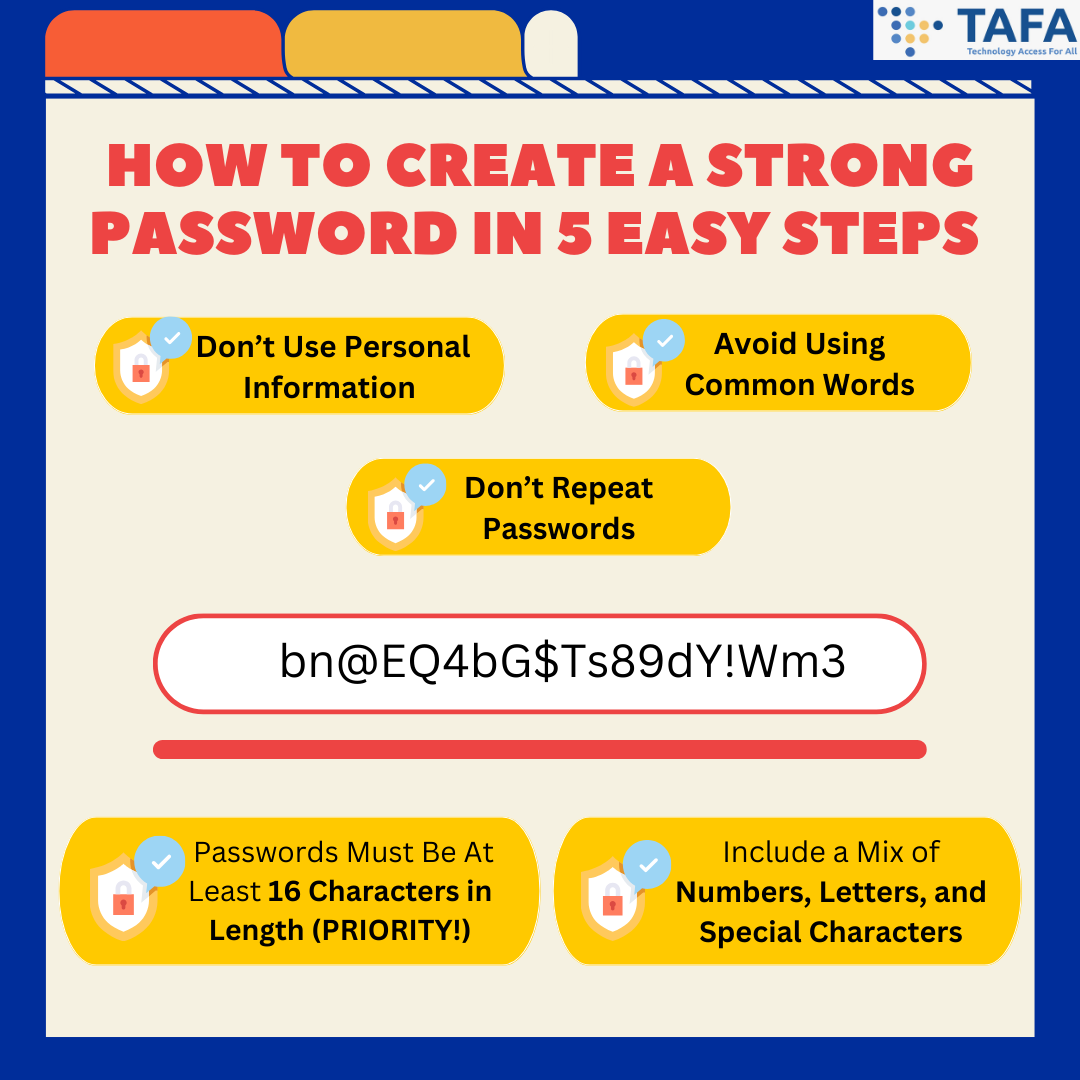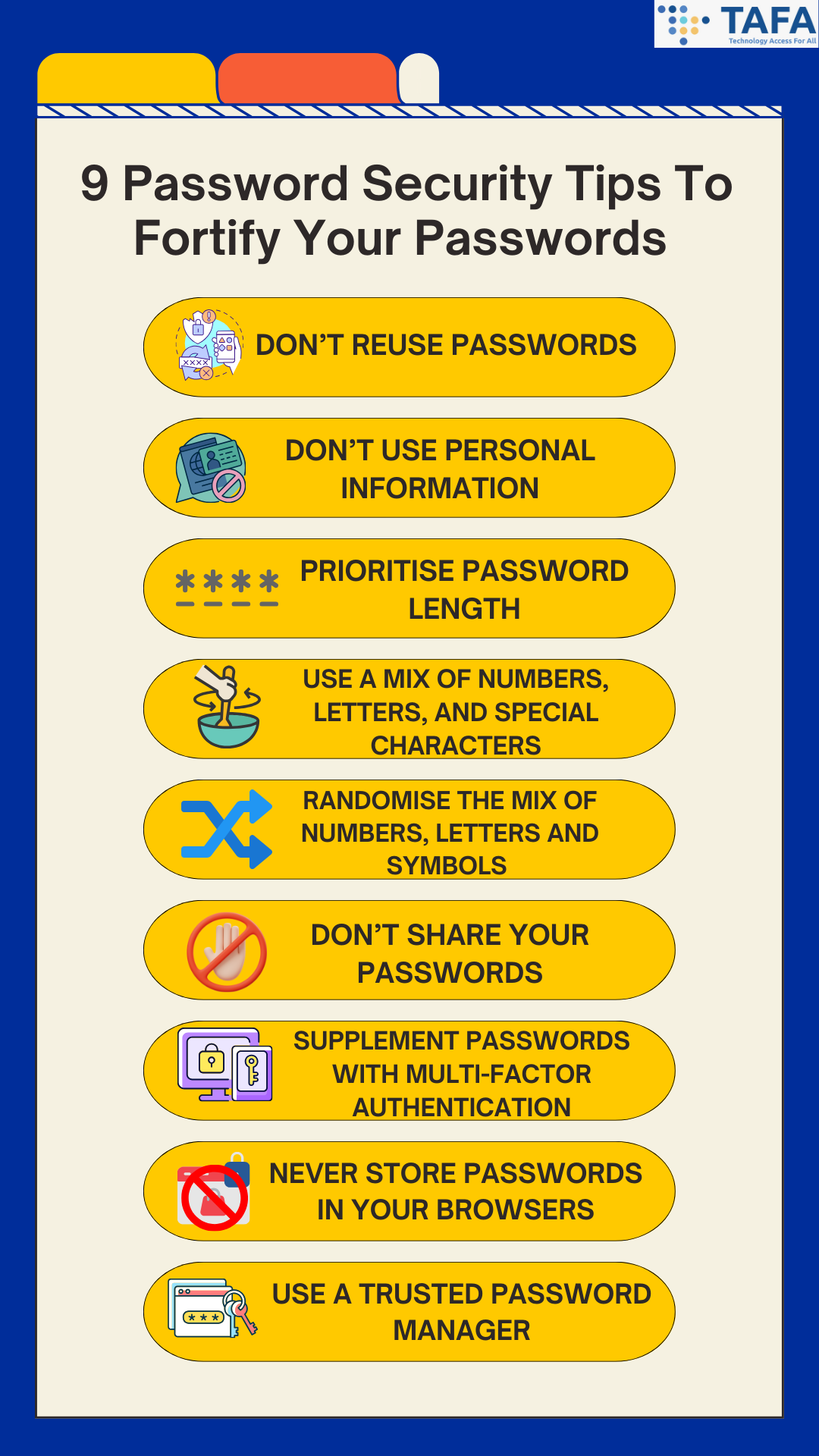|
In the labyrinthine world of cyberspace, where opportunities abound, dangers also lurk. Your online identity is akin to a precious treasure, one that needs the staunchest defence. Passwords, the keys to protecting your online digital life, demand particular attention and vigilance. How do I create a strong password? How do I improve my password security? Don’t worry, this article is here to help you. We will first guide you on how to create a strong password, and then we will list down password security tips that can be easily followed to ensure you can fortify your security, thus helping you live a more cyber safe lifestyle. Why Do I Need Strong Passwords? You may wonder: why do I need strong passwords anyway? The reality is that even though most websites are secure, there is always a chance that cybercriminals may try to access or steal your personal information. Hence, password security is of utmost importance, especially with the consequences of what could happen if you have weak password security, such as identity theft and data breaches. To learn more about the top 8 types of password attacks, click here. A strong password is one of the best ways to defend your accounts and sensitive information from cybercriminals. How To Create A Strong Password In 5 Easy Steps 1. Don’t Use Personal Information. Never include personal information in your passwords, such as names and birthdates of your relatives, child or pets, phone numbers or phone numbers. As this information can be easily found especially on social media. Don’t make it easy for hackers to guess your passwords! 2. Include a Mix of Numbers, Uppercase and Lowercase Letters, and Special Characters. Strong passwords should be complex and include a combination of numbers, letters, and special characters. Ensure that there are no repetitive or sequential characters (e.g. ‘eeeeee’, ‘123abc’). 3. Passwords Must Be At Least 16 Characters in Length. Password length is extremely important as the longer the password, the less chance of hackers can easily crack your passwords. It is recommended that your passwords should be at least 16 characters in length. 4. Avoid Using Common Words. In common words, it is best to substitute letters with numbers and special characters (e.g. punctuation marks and/or symbols). Hackers can use malicious programs to process every word in the dictionary to crack passwords. 5. Don’t Repeat Passwords, Like Ever. Reusing the same password for different accounts will put you at risk of credential stuffing attacks, which is essentially where cybercriminals use the stolen usernames and passwords and test them against multiple sites. 9 Password Security Tips To Fortify Your Passwords Utilise these password security tips to help you improve your cyber security, and help you live a more cyber safe lifestyle. 1. Don’t Reuse Passwords. Recycling passwords will put you at risk of credential stuffing attacks.
2. Don’t Use Personal Information. Never use names, birthdates, addresses or phone numbers in your passwords as this information can be easily found. This jeopardises the effectiveness of passwords against cyberattacks. 3. Prioritise Password Length. As length trumps complexity. The longer your password length is, the harder it is for cybercriminals to guess your password. As there are more possible permutations, making it harder for cybercriminals to crack. It is recommended that passwords should be at least 16 characters long. 4. Use A Mix of Numbers, Uppercase and Lowercase Letters, and Special Characters. Create a password that is at least 12 characters long, which includes a mix of uppercase, lowercase, numbers and special characters. This will help you create a strong unique password which is the blueprint to a rock-solid cybersecurity abode. 5. Randomise the Mix of Numbers, Uppercase and Lowercase Letters, and Special Characters. Ensure to randomise the mix of numbers, letters and special characters to protect against password spraying attacks, which is a hacking technique whereby cybercriminals use a list of frequently chosen passwords to guess the passwords of their potential victim. 6. Don’t Share Your Passwords. Never tell anyone your passwords even to family and friends, and be especially cautious of emails or messages that are trying to persuade you via urgency, to reveal your passwords. Usually it is a trick! 7. Supplement Passwords With Multi-Factor Authentication (MFA). Passwords should not be the sole method for authenticating an identity or verifying access authorisations. It is best to include MFA, such as biometrics or one-time codes as an additional layer of security and protection. 8. Never Store Passwords In Your Browsers. Many browsers do give the option of saving your passwords. Although this seems convenient, it is poor password management. Cybercriminals can access and steal these saved passwords via manipulation of cookies. 9. Use a Trusted Password Manager. Password managers are a secure way to store all your passwords as they help generate and remember different complex passwords for all of your accounts, and encrypt them for additional security. Conclusion In the vast digital realm, your passwords are the sentinels guarding your virtual kingdom. By understanding their significance, crafting robust defences, and employing best practices, you can reinforce these sentinels, ensuring a formidable defence against potential invaders. Let your online presence be a citadel, unassailable and secure. Embrace the art of password security, for in this age of digital innovation, your safety is the ultimate treasure worth protecting. Venture forth into the digital wilderness with wisdom, and may your passwords be your invincible guardians. Related Topics A Personal Cybersecurity Checklist - How Cyber Secure Are You? Safeguarding Your Digital Fortress: Defending Against the Top 8 Password Attacks The Risks of Public Wi-Fi & Tips On How To Stay Safe Is This QR Code Safe? Top Tips to Ensure Your QR Scans are Secure Unmasking Phishing: Your Guide to Spotting The Signs of Phishing Comments are closed.
|
Archives
June 2024
Categories
All
|
|
© 2021, TAFA HOLDINGS (S) PTE LTD. ALL RIGHTS RESERVED
|




 RSS Feed
RSS Feed